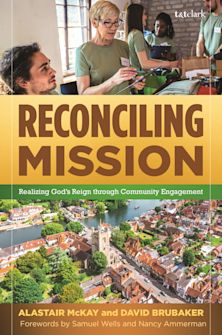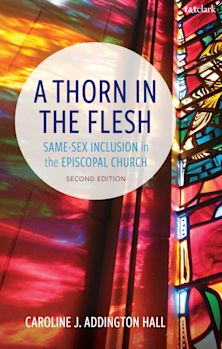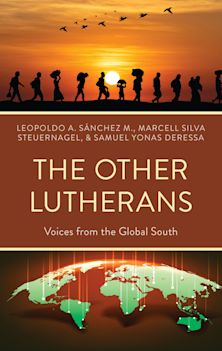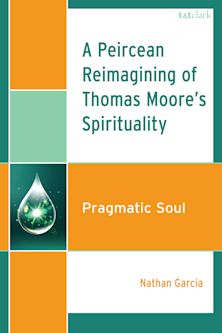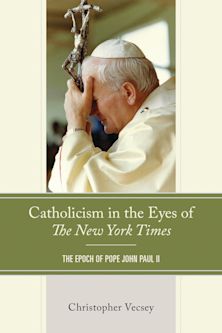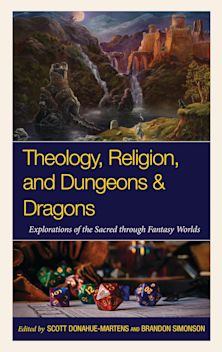- Home
- ACADEMIC
- Theology
- Theology - Other
- Ethnoreligiosity in the Contemporary Societies of the Former Yugoslavia
Ethnoreligiosity in the Contemporary Societies of the Former Yugoslavia
The Veils of Christian Delusion
Ethnoreligiosity in the Contemporary Societies of the Former Yugoslavia
The Veils of Christian Delusion
You must sign in to add this item to your wishlist. Please sign in or create an account
Description
Using Christian communities in the former Yugoslavia as a case study, Branko Sekulic introduces the concept of ethnoreligiosity to the theological discussion in order to resolve the confusion that occurs when scholars talk about the concepts of ethno-religion or ethnoreligion. Ethno-religion/ethnoreligion came to describe the phenomenon of ethnic religion as a certain cultural specificity and which by itself has no negative connotation, but due to the lack of a better expression , it has been used as a term for the phenomenon of ethnic and religious conflict and discrimination. In that sense, ethnoreligiosity can be defined as a phenomenon resulting from the usurpation of the religious aspect of human life by the ethnic one, or more precisely, it emerges as a consequence of an ethnic (ethnonational) ideological overtaking of the structures of the religious organization. It takes place through the attempt to give sacral connotation to a particular ethnonational myth as an integral part of ethnonational ideology, with the result that religious feeling is no longer generated on a religious but primarily on an ethnonational base. By understanding the proper definition and manifestation of ethnoreligiosity, one will have the opportunity to discern the basic components of this phenomenon not only within the countries of the former Yugoslavia, but in other countries as well.
Table of Contents
Chapter 1. Distinguishing the Ethnic, Religious, and Ethno-Religious
Chapter 2. Ethnoreligiosity as a Temptation Posed to Christianity
Chapter 3. The Temptation Posed to Christianity in the Former Yugoslavia
Conclusion
Bibliography
About the author
Product details
| Published | Feb 08 2022 |
|---|---|
| Format | Ebook (PDF) |
| Edition | 1st |
| Extent | 324 |
| ISBN | 9781978784826 |
| Imprint | Fortress Academic |
| Publisher | Bloomsbury Publishing |
About the contributors
Reviews
-
The analysis is nuanced and fact-based by a very erudite and well-informed scholar. I know of no other person who does it so competently. Sekulic consults and incorporates most of the relevant literature in several languages. In addition, he has done something that is very hard in the Balkan context, and that is not to favor one or the other side in the conflict but deal with the material evenhandedly and judiciously. This is what is usually lacking in most of the books dealing with the Balkan conflicts. From my perspective this is one of the most important qualities: a book by a critical thinker who goes deeply—very deeply—into the subject matter without being prejudiced or overtly biased.
Paul Mojzes, Rosemont College, emeritus
-
It is generally acknowledged, both in academia and the public, that the conflation of ethnic and national identities with Christian identity had a major role in the Western Balkan conflicts, especially during the past few decades. Still, hardly any well-grounded theological explorations into this conflation have been undertaken so far. This book fills this void. It is a theological tour de force that dissects the ethnic enslavement of Christian identity in this region. Sekulic’s concept of ethnoreligiosity is set to inform not only the works focusing on this region, but also the growing processes conflating ethnicity with religion throughout the world.
Zoran Grozdanov, University Center for Protestant Theology Matthias Flacius Illyricus, Zagreb
-
Branko Sekulic's book is a groundbreaking exploration of the deep structures that made the shocking excesses of violence and ethnic cleansing possible after the break-up of Yugoslavia. His focus is on the unholy connection between ethnos and religion. This gives rise to an "ethnoreligiosity" that legitimizes the atrocities. The artificial word "ethnoreligiosity" indicates that, despite it insinuating a strong link to Christian traditions, it is an artificial religion. Its only purpose is to legitimize political action. Sekulic’s book is an indispensable contribution to understanding the Balkan conflict, but above all to reconciliation and prevention.
Reiner Anselm, Ludwig-Maximilians-Universität München
-
Branko Sekulic has rendered a valuable contribution to the scholarly world. Combining historical, religious, and linguistic precision, he reveals the relationship between the 'ethnoreligiosic' phenomenon and the identity of 'Croatcatholic' and 'Serborthodox' peoples. This results in a toxic mix of fundamentalism and triumphalism which distorts history and leads to the demonization of the Other. Sekulic's work untangles the knotty complex of factors which continue to plague the former Yugoslavia and to challenge scholars of religion.
Alan L. Berger, Florida Atlantic University

ONLINE RESOURCES
Bloomsbury Collections
This book is available on Bloomsbury Collections where your library has access.












